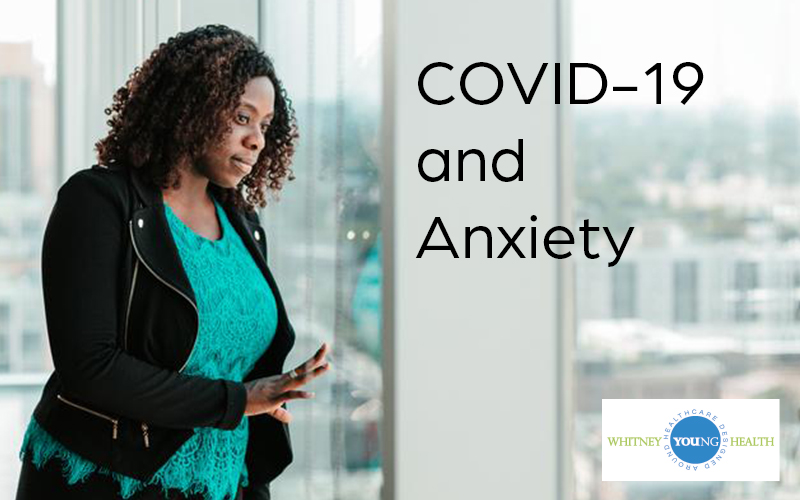
Reducing Stress and Anxiety during Times of Uncertainty and COVID-19
By Angela Doe, M.S., LMHC, CASAC-master, ICADC, HS-BCP
Chief Behavioral Health Officer
Whitney M. Young, Jr. Health Center
Across our nation and the globe, individuals are being asked to stay inside and away from crowds to prevent further spread of the novel coronavirus. As a result individuals are practicing social distancing, are choosing Netflix rather than going to the theater and dinners at favorite restaurants are being postponed indefinitely.
As the COVID-19 pandemic continues to impact our daily lives; the more uncertain we feel about the potential ramifications associated with it.
Often we find ourselves feeling worried and anxious about our health as well that of our spouses, significant others, children and loved ones. We find ourselves concerned about paying the rent, the future of our financial status, and even our next paycheck.
And while there’s no cure for the heightened anxiety associated with these stressful, unprecedented times; there are practical ways to improve your approach to dealing with anxiety to reduce feelings of helplessness.
Give yourself permission to acknowledge that these are uncertain times; as for most, we’ve never experienced anything quite like this. And most importantly focus on—not what you’re experiencing, rather what you may do about it, and what steps you may take to resolve it.
Keep a Schedule and Have a Plan
- Whenever possible, maintain a familiar routine. Get up each morning as if you are planning to go to work, create a dedicated workspace/educational space for you and members of your family.
- Research denotes maintaining a sense of normalcy and control over daily activities whenever possible serves to decrease feelings of unmanageability and anxiety.
Eat Healthy
- There is a growing amount of research outlining the positive effects of how food may improve one’s mood.
Exercise and Maintain Physical Activity
- Integrate physical exercise into your lifestyle, however, that works for you.
- Exercise is considered vital for maintaining mental fitness, and is proven to significantly reduce stress and feelings of anxiety. In fact, studies from the Anxiety and Depression Association of American (2019) show that exercise is most effective at reducing fatigue, improving alertness and concentration, and at enhancing overall cognitive function. This can be especially helpful as feeling anxious often depletes one’s energy or ability to concentrate.
- In numerous studies, Exercise has proven more effective in reducing feelings of anxiety than medication.
Take Time Out
- Give yourself permission to sign-off from the computer, turn off the television and other devices.
- Take time to relax.
- Find balance between your responsibility to others and your responsibility to self.
Get Some Sleep
- Amend your environment to maintain healthy sleep patterns.
- Establish “good” sleep hygiene.
- The Centers for Optimal Well Being (2018) identifies sleep as essential for well-being; noting individuals with healthy sleep patterns are more productive and are less likely to experience depression and feelings of anxiety.
Be Observant and Mindful “Know Thy Self”
- Recognize the signs of your body’s response to stress and anxiety.
- Take notice if you are experiencing difficulty sleeping, have low energy, if you’re easily angered, feeling stressed, anxious or depressed.
Stay Connected “We’re all Alone, Together!”
- Keep in touch with family, friends, co-workers, and community organizations to ensure socialization, connectedness, support and commonality during this time of uncertainty.
If you’re feeling overwhelmed by stress and anxiety, please be sure to reach out to a mental health care professional.
